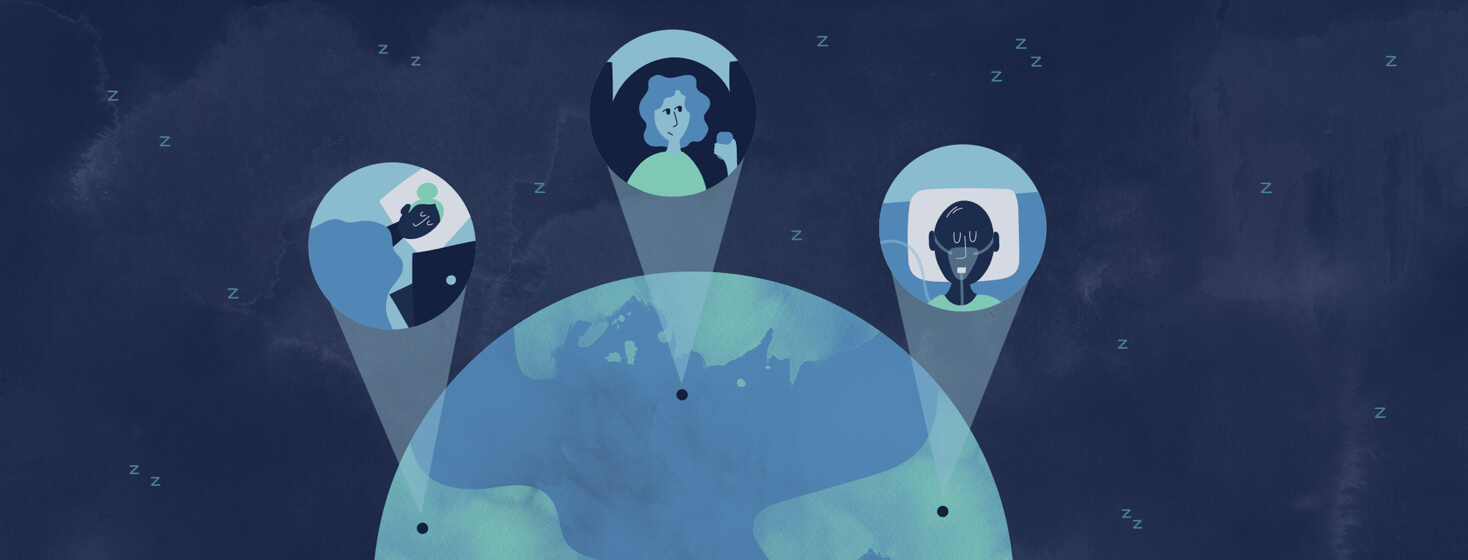World Sleep Day 2021: Reclaim Regular Sleep for Better Health
If someone before the pandemic suggested you should strive for regular sleep for a healthy future, would you have paid them any mind?
It's unlikely. We've long been a culture that places sleep secondary to work, social life, even (and ironically) physical and mental health. Sleeping is viewed as lazy, a symptom of weakness, and a waste of time.
Fast-forward to now and even to the near future. What does "Regular Sleep for a Healthy Future" mean to you, post-pandemic?
"Regular Sleep for a Healthy Future" is the theme for this year's World Sleep Day, which takes place on Friday, March 19, 2021.1
What is regular sleep?
Regular sleep during a pandemic is now a goal many – if not most – people struggle to achieve.
The pandemic has become a structural curveball for many of us. The activities we normally participate in daily (work, school, exercising, shopping, socializing, hobbies) have been reconfigured.2
This is not, by itself, a bad thing. Staying at home during a pandemic is what keeps people healthy and alive. But without structure in place, our circadian rhythms have taken a hit.
How change in routine impacts our sleep
COVID-19 has pulled our daily structure right out from underneath us. Its fundamental impact on our day-to-day lives has made it hard for even the best sleepers among us to get our forty winks.3
If you find yourself sleeping later than you normally would, or staying up later, these are signs of an irregular or shifting sleep schedule.
Teleconferencing for work or play means spending more time in front of a screen versus out in the world. The timing of these activities (and the constant exposure to blue spectrum light) can disrupt sleep.
For some, free time abounds and can be difficult to fill. Daytime naps and nighttime Netflix binges are 2 ways we cope with pandemic stress, yet these also interfere with regular sleep.
Goals for regular sleep
Regular sleep takes place nightly at roughly the same time and should be consolidated into one period of at least 7 hours for adults. (See the Sleep Foundation's recommendations for every age group.)4
What disrupts regular sleep?
- Mental health issues (anxiety and/or depression, as examples)
- Physical health issues (COVID-19, poor health due to sedentary living, health problems that are either undermanaged or ignored, as examples)
- New job or school demands for you or a family member, or job loss or radical change
- Poor sleep hygiene (smartphone "doomscrolling" in bed, working from bed at night, as examples)
How can regular sleep lead to a healthy future?
Undiagnosed and untreated sleep disorders are established risk factors for chronic health problems:
- Insomnia
- Sleep apnea
- Restless legs syndrome
- Circadian rhythm disorders
- Parasomnias like sleepwalking
- Nightmare disorders
Sleep deprivation is also a safety risk that could lead to injury. For instance, someone with undiagnosed or untreated sleep apnea could easily fall asleep behind the wheel of a car. They may also develop type 2 diabetes or increase their risk for stroke.
Someone who sleepwalks may become a fall risk. Another concern? Nighttime wandering, or somnambulism known as REM behavior disorder, may be a sign of early-stage neurological conditions like dementia.
Mental health impacts
People who experience extremely late nights or awaken far too early in the morning may be at higher risk for poor mental health. If you've ever had pronounced jetlag, you might recall how awful it made you feel. Weight gain may also be a side effect.
Insomnia has a deep relationship to anxiety and depression, which may also cause sleeplessness. All need to be addressed if regular sleep is to be reclaimed.
COVID-somnia
And what about COVID-somnia? It's riddled with problems with falling or staying asleep. When someone with COVID-somnia does finally fall asleep, their dream life is a long stream of vivid, unpleasant dreams or terrifying nightmares.
Disrupted sleep by all causes remains a fast pass to poor health, pure and simple. Which makes the phrase, "Regular Sleep for a Healthy Future," hardly the snoozefest concept it might have been pre-pandemic.
Sleep to live
Sleep is not optional. It joins nutrition and exercise as critical for optimal health and well-being. We need to sleep to live.
How to reclaim regular sleep
- Sleep hygiene is king. Keep a regular sleep schedule. Avoid electronics at bedtime. Practice relaxation. Mindful sleep demands mindful living: strive to eat healthy, get daily exercise, and enjoy a blast of natural light every morning to improve your sleep schedule.
- Try cognitive behavioral therapy for insomnia (CBT-i). This can tackle tough COVID-somnia problems, with online and telemedicine options now available.
- If sleep remains elusive, talk with your doctor. Healthcare providers, from general practitioners to specialists, are increasingly aware of this poor sleep epidemic. They're working hard to connect their patients with solutions that help them get more and better sleep every night.

Join the conversation